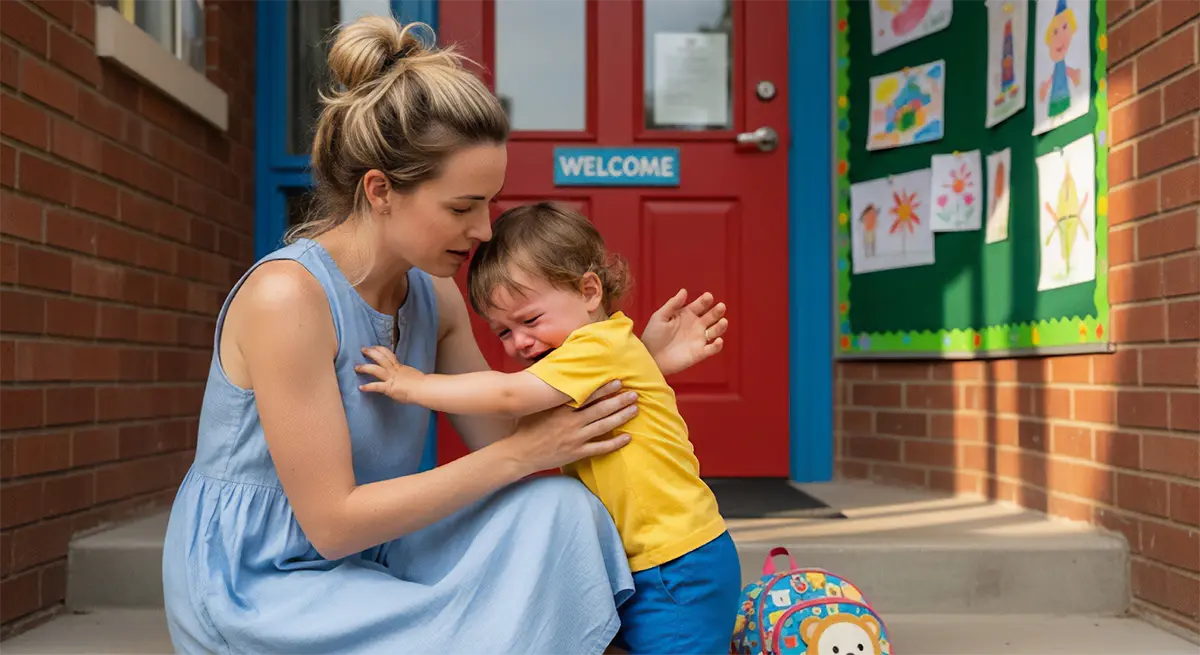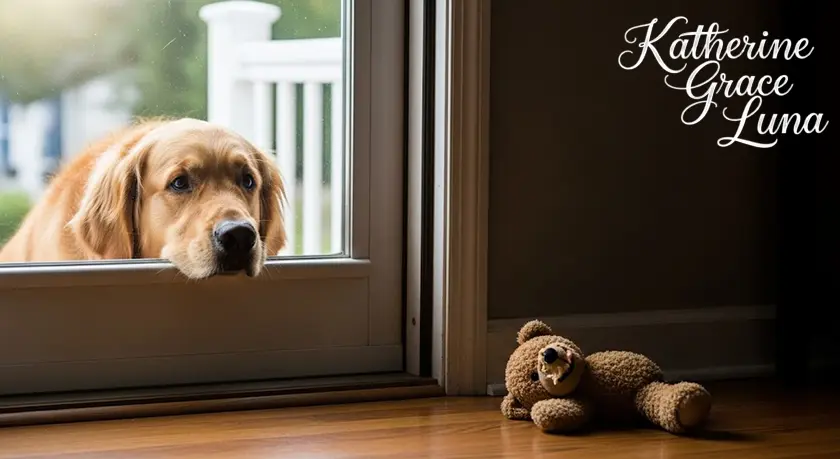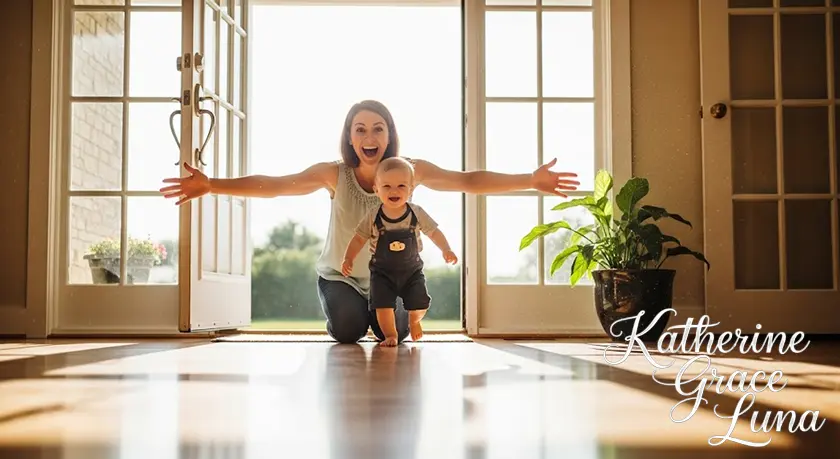When Your Child Can't Let You Go: Understanding Separation Anxiety

Every morning, the same scene plays out at preschool drop-off. Tears, clinging, and promises of "I'll be good if you just stay!" Sound familiar? Or maybe your toddler treats your bathroom breaks like you're leaving for a month-long expedition?
I remember when my niece was about a year old, her mom couldn't even sneak off to the bathroom without triggering a full-blown meltdown. Back then, I just thought she was being a typical clingy baby. Turns out, this was all part of a completely normal developmental process.
What Exactly Is Separation Anxiety?

Simply put, separation anxiety is when kids experience excessive distress about being away from home or their primary caregivers. It's that overwhelming fear that mom or dad might disappear and never come back.
Fun fact: dogs get it too! You know those pups who destroy the house the moment their owners leave? That's canine separation anxiety. Our kids are going through something pretty similar - just with fewer chewed-up shoes (hopefully).
No, Your Attachment Isn't "Wrong"
Here's something crucial: separation anxiety doesn't mean you've messed up the attachment process. Actually, separation anxiety between 8 to 24 months is completely normal and even healthy.
During this phase, babies start showing stranger anxiety and cry when caregivers leave. Think about it from their perspective - their entire world revolves around the people who keep them safe. The thought of those people disappearing forever? That's genuinely terrifying for a little one.
But here's the beautiful part: around age 2, most kids have an important breakthrough. They realize that when mommy disappears behind that door, she actually comes back. This trust is the foundation of secure attachment.

When Should You Worry?
If your 3 or 4-year-old is still showing intense separation anxiety that interferes with daily life, it's worth paying attention.
Let me paint you a picture: Eight-year-old Jake gets anxious every school morning. He's convinced his parents will get into an accident while he's gone. His stomach hurts so badly from worry that he's been to the doctor multiple times - but there's nothing physically wrong. The upcoming summer camp? He's already dreading it.
When these patterns persist, they can lead to low self-esteem, withdrawn behavior, aggression, or even physical symptoms that persist into the school years and beyond.
What Causes Separation Anxiety?
Environmental factors play the biggest role
Helicopter parenting, sudden changes like divorce or moving, a new sibling, or both parents working can all trigger separation anxiety. Sometimes it stems from disruptions in the attachment process during early caregiving.
Temperament matters too
Some kids are naturally more dependent, anxious in new situations, or shy by nature. These children tend to experience separation anxiety more intensely. And yes, genetics can play a role too.

Is This Separation Anxiety Disorder?
While only a professional can diagnose, the DSM-5 criteria can help you understand when anxiety crosses into disorder territory. If your child shows three or more of these symptoms for at least 4 weeks (6 months for adults) and it's disrupting their life, it's time to seek help:
Key symptoms include:
- Excessive distress when separation occurs or is anticipated
- Persistent worry about losing loved ones or harm coming to them
- Physical complaints like headaches or stomachaches during separations
- Extreme fear of being alone
- Recurring nightmares about separation
How Can We Help?
Behavioral therapy and play therapy work wonders
Cognitive behavioral therapy adapted for kids uses play to help reshape distorted thoughts about separation. For children who struggle with verbal expression, art therapy offers a fantastic outlet. Through creative activities, kids can naturally express and process their inner anxieties.
Try aromatherapy
Scents like orange, lavender, and Roman chamomile can provide emotional comfort and stress relief. Add a few drops to bath time or use during massage - it's a gentle, natural approach that many families find helpful.
For severe cases, medication might be considered. SSRIs can help reduce anxiety, but this is always done under close medical supervision and typically after other interventions have been tried.

The Bottom Line
Separation anxiety is a normal part of growing up. The key is understanding your child's fears and giving them time and patience to work through them.
Keep your promises simple and consistent: "Mommy always comes back." Create predictable routines that help your child feel secure. And if symptoms are severe or persistent, don't hesitate to reach out for professional support - there's no shame in getting help.
Remember, every child develops at their own pace. Some kids wave goodbye without a second thought at 18 months, while others need extra reassurance well into their preschool years. Both are okay.
Your job? Be their safe harbor while they learn to navigate the world on their own. You've got this, parents!
